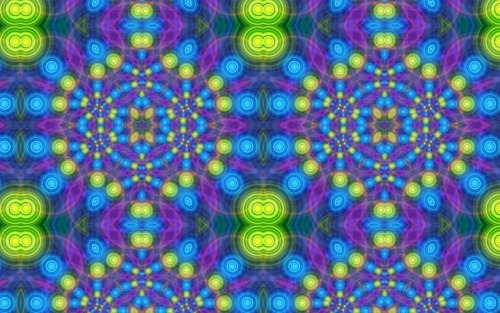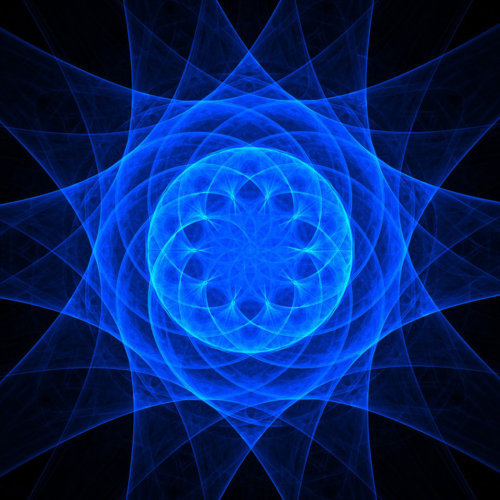Nirvikalpa and diverted aphorisms
I wrote down this Analysis of Nirvikalpa text, because you posted it, to give you the opportunity to understand at a deeper level, what aphorisms may contain, without you being aware that they are acting in an implicit manner on your mental procedures and system. I apologize for the quantity of data that I will use to support my explanation, but nevertheless, I shall proceed in this way to stress out all the possible diversions these aphorisms are carrying with them.

This is an example of typical analysis, that a Guru, reading these
texts, could mentally make in a couple of seconds. Time is a
relative concept, and although we shall take a couple of hours to
read and understand this procedure, through the articles that I
shall connect to the main sentences, this will be a useful lesson,
offering you the possibility to know, deeply, what’s happening.
This procedure, that aims to awareness and a better understanding of life, thoughts, operations, and consciousness, regards to illusion and sufferance, can be found in Raja Yoga, though no one in western world practices this kind of attention, to mental body, and karma.
I
promise you that next time that you will formulate the wish to
understand something, it will be much easier for you to reach the
heart of the question.

“Love means honoring the other person’s free will”.
- If you love someone set them free. – Sting - Exact, but we should remember that there are a couple of concepts added to the principle: honor, and free will.
- Honor : Honour or honor (from the Latin word honos, honoris) is the evaluation of a person’s social status as judged by that individual’s community. Accordingly, individuals are assigned worth and stature based on the harmony of their actions, code of honour, and that of the society at large. Honour can be analysed as a relativistic concept, i.e., conflicts between individuals and even cultures arising as a consequence of material circumstance and ambition, rather than fundamental differences in principle. Alternatively, it can be viewed as nativist — that honour is as real to the human condition as love, and likewise derives from the formative personal bonds that establish one’s personal dignity and character.
- The concept of honour appears to have declined in importance in the modern West. It has been replaced by conscience or faith in the individual context, and by the rule of law and the rights and duties defined therein in a social context. Popular stereotypes would have it surviving more definitively in cultures that are more tradition-bound (e.g. Southern Italian, Polish, Persian, Turkish, Arab, Iberian, “Old South” or Dixie). Feudal or other agrarian societies, which focus upon land use and land ownership, may tend to “honour” more than do contemporary industrial societies. An emphasis on the importance of honour exists in such institutions as the military (officers may conduct a court of honour) and in organisations with a military ethos, such as Scouting organisations.
- Honour in the case of females is frequently related, historically, to sexuality: preservation of “honour” equated primarily to maintenance of virginity of unattached women and to the exclusive monogamy of the remainder. One can speculate that feminism has changed some linguistic usage in this respect. Conceptions of honour vary widely between cultures; in some cultures, honour killings of (mostly female) members of one’s own family are considered justified if the individuals have “defiled the family’s honour” by marrying against the family’s wishes, or even by being the victims of rape. These honour killings are generally seen in the West as a way of men using the culture of honour to control female sexuality.

Cultures of honour and cultures of law
Various sociologists and anthropologists have contrasted cultures of honour with cultures of law. In a culture of law there is a body of laws which must be obeyed by all, with punishments for transgressors. This requires a society with the structures required to enact and enforce laws. A culture of law incorporates an unwritten social contract: members of society agree to give up some aspects of their freedom to defend themselves and retaliate for injuries, on the understanding that transgressors will be apprehended and punished by society. From the viewpoint of anthropologists, cultures of honour typically appear among nomadic peoples and herdsmen who carry their most valuable property with them and risk having it stolen, without having recourse to law enforcement or government. In this situation, inspiring fear forms a better strategy than promoting friendship; and cultivating a reputation for swift and disproportionate revenge increases the safety of one’s person and property. Thinkers ranging from Montesquieu to Steven Pinker have remarked upon the mindset needed for a culture of honour.
Cultures of honour therefore
appear among the Bedouin, and the Scottish and English herdsmen of
the Border country, and many similar peoples, who have little
allegiance to a national
government; among cowboys, frontiersmen, and ranchers of the
American West, where official law-enforcement often remained out of
reach, as is famously depicted and celebrated in Westerns; among the
plantation culture of the American South, and among aristocrats, who
enjoy hereditary
privileges that put them beyond the reach of codes of law. Cultures
of honour also flourish in criminal underworlds and gangs, whose
members carry large amounts of cash and contraband and cannot seek
legal redress if it is stolen.
The ancient Greek concepts of honour (timē)
included not only the exaltation of the one receiving honour, but
also the shaming of the one overcome by the act of hubris. This
concept of honour is akin to a zero-sum game.
In ancient China during the Warring States period, honour in battle was one of the many forms of virtue practised by the nobility. In a battle, Duke Xiang of the Song state, instead of giving the enemy a surprise attack, he waited for the enemy to go across the river in order to be a real Ren (仁) gentleman. Mao Zedong once said about Duke Xiang’s humanity in war: “We are not Duke Xiang of Song and have no use for his idiotic virtue and morality.”
According to Bushido, the Code of the Warrior in feudal Japan, honour was always seen as a duty by Samurai. When one lost their honour or the situation made them lose it, the only way to save their dignity was by death. Seppuku (vulgarly called “harakiri”, or “belly-cutting”) was the most honourable death in that situation. The only way for a Samurai to die more honourably was to be killed in a battle by a sword.
For a similar concept with many connotations opposite to honour, see shame.

And free will:
Free will is the apparent ability of agents to make choices free from certain kinds of constraints. Historically, the constraint of dominant concern has been the metaphysical constraint of determinism. The opposing positions within that debate are metaphysical libertarianism, the claim that determinism is false and thus that free will exists (or is at least possible); and hard determinism, the claim that determinism is true and thus that free will does not exist.
Both of these positions, which agree that causal determination is the relevant factor in the question of free will, are classed as incompatibilists. Those who deny that determinism is relevant are classified as compatibilists, and offer various alternative explanations of what constraints are relevant, such as physical constraints (e.g. chains or imprisonment), social constraints (e.g. threat of punishment or censure), or psychological constraints (e.g. compulsions or phobias).
The principle of free will
has religious, ethical, and scientific implications. For example, in
the religious realm, free will implies that individual will and
choices can coexist with an omnipotent
divinity. In ethics, it may hold
implications for whether individuals can be held morally accountable
for their actions.
Incompatibilism is the position that free will and determinism are
logically incompatible, and that the major question regarding
whether or not people have free will is thus whether or not their
actions are determined. “Hard determinists”, such as Martin Luther
and d’Holbach, are those incompatibilists who accept determinism and
reject free will. “Metaphysical libertarians”, such as Thomas Reid,
Peter van Inwagen, and Robert Kane, are those incompatibilists who
accept free will and deny determinism, holding the view that some
form of indeterminism is true. Another view is that of hard
incompatibilists, which state that free will is incompatible with
both determinism and indeterminism. This view is defended by Derk
Pereboom.

Determinism is a broad term with a variety of meanings. Corresponding to each of these different meanings, there arises a different problem of free will.
- Causal determinism states that future events are necessitated by past and present events combined with the laws of nature. Such determinism is sometimes illustrated by the thought experiment of Laplace’s demon. Imagine an entity that knows all facts about the past and the present, and knows all natural laws that govern the universe. If the laws of nature were determinate, then such an entity would be able to use this knowledge to foresee the future, down to the smallest detail.[4]
- Logical determinism is the notion that all propositions, whether about the past, present or future, are either true or false. The problem of free will, in this context, is the problem of how choices can be free, given that what one does in the future is already determined as true or false in the present.[3]
- Theological determinism is the idea that there is a god who determines all that humans will do, either by knowing their actions in advance, via some form of omniscience[5] or by decreeing their actions in advance.[6] The problem of free will, in this context, is the problem of how our actions can be free if there is a being who has determined them for us in advance.
- Biological determinism is the idea that all behaviors, beliefs, and desires are fixed by our genetic endowment and our biochemical makeup, the latter of which is affected by both genes and environment.
- Other forms of determinism include: cultural determinism and psychological determinism. Combinations and syntheses of determinist theses, e.g. bio-environmental determinism, are even more common.
Traditional arguments for incompatibilism are based on an “intuition pump”: if a person is like other mechanical things that are determined in their behavior such as a wind-up toy, a billiard ball, a puppet, or a robot, then people must not have free will. This argument has been rejected by compatibilists such as Daniel Dennett on the grounds that, even if humans have something in common with these things, it remains possible and plausible that we are different from such objects in important ways.
Another argument for incompatibilism is that of the “causal chain.” Incompatibilism is key to the idealist theory of free will. Most incompatibilists reject the idea that freedom of action consists simply in “voluntary” behavior. They insist, rather, that free will means that man must be the “ultimate” or “originating” cause of his actions. He must be a causa sui, in the traditional phrase. To be responsible for one’s choices is to be the first cause of those choices, where first cause means that there is no antecedent cause of that cause. The argument, then, is that if man has free will, then man is the ultimate cause of his actions. If determinism is true, then all of man’s choices are caused by events and facts outside his control. So, if everything man does is caused by events and facts outside his control, then he cannot be the ultimate cause of his actions. Therefore, he cannot have free will. This argument has also been challenged by various compatibilist philosophers.

A third argument for incompatibilism was formulated by Carl Ginet in the 1960s and has received much attention in the modern literature. The simplified argument runs along these lines: if determinism is true, then we have no control over the events of the past that determined our present state and no control over the laws of nature. Since we can have no control over these matters, we also can have no control over the consequences of them. Since our present choices and acts, under determinism, are the necessary consequences of the past and the laws of nature, then we have no control over them and, hence, no free will. This is called the consequence argument.[14][15] Peter van Inwagen remarks that C.D. Broad had a version of the consequence argument as early as the 1930s.[16]
The difficulty of this argument for compatibilists lies in the fact that it entails the impossibility that one could have chosen other than one has. For example, if Jane is a compatibilist and she has just sat down on the sofa, then she is committed to the claim that she could have remained standing, if she had so desired. But it follows from the consequence argument that, if Jane had remained standing, she would have either generated a contradiction, violated the laws of nature or changed the past. Hence, compatibilists are committed to the existence of “incredible abilities”, according to Ginet and van Inwagen. One response to this argument is that it equivocates on the notions of abilities and necessities, or that the free will evoked to make any given choice is really an illusion and the choice had been made all along, oblivious to its “decider”. David Lewis suggests that compatibilists are only committed to the ability to do something otherwise if different circumstances had actually obtained in the past.
Metaphysical libertarianism
Various definitions of free will that have been proposed, for both Compatibilism,[18] and Incompatibilism (Hard Determinism,[19] Hard Incompatibilism,[2] Libertarianism Traditional,[20] and Libertarianism Volition[21]). Red circles represent mental states; blue circles represent physical states; arrows describe causal interaction.
Metaphysical libertarianism is one philosophical view point under that of incompatibilism. Libertarianism holds onto a concept of free will that requires the individual to be able to take more than one possible course of action under a given set of circumstances.
Accounts of libertarianism subdivide into non-physical theories and physical or naturalistic theories. Non-physical theories hold that a non-physical mind overrides physical causality, so that physical events in the brain that lead to the performance of actions do not have an entirely physical explanation. This approach is allied to mind-body dualism in philosophy. According to this view, the world is not considered to be closed under physics: extraphysical factors can influence decision-making. As a matter of free belief, an extra-physical will may be decided to exist. Depending on the way the decision turns out, such views may or may not accept an independent soul said to make decisions and override physical causality.
Explanations of libertarianism that do not involve dispensing with physicalism require physical indeterminism, such as probabilistic subatomic particle behavior – theory unknown to many of the early writers on free will. Physical determinism, under the assumption of physicalism, implies there is only one possible future and is therefore not compatible with libertarian free will. Some libertarian explanations involve invoking panpsychism, the theory that a quality of mind is associated with all particles, and pervades the entire universe, in both animate and inanimate entities. Other approaches do not require free will to be a fundamental constituent of the universe; ordinary randomness is appealed to as supplying the “elbow room” believed to be necessary by libertarians.
Free volition is regarded as a particular kind of complex, high-level process with an element of indeterminism. An example of this kind of approach has been developed by Robert Kane,[21] where he hypothesises that,
“In each case, the indeterminism is functioning as a hindrance or obstacle to her realizing one of her purposes—a hindrance or obstacle in the form of resistance within her will which has to be overcome by effort”.
Although at the time C. S. Lewis wrote Miracles, Quantum Mechanics (and physical indeterminism) was only in the initial stages of acceptance, he stated the logical possibility that if the physical world was proved to be indeterministic this would provide an entry (interaction) point into the traditionally viewed closed system, where a scientifically described physically probable/improbable event could be philosophically described as an action of a non-physical entity on physical reality.

Free will as a mix of chance and determination
In 1884 William James described a two-stage model of free will: in the first stage the mind develops random alternative possibilities for action, and in the second an adequately determined will selects one option. A number of other thinkers have since refined this idea, including Henri Poincaré, Arthur Holly Compton, Karl Popper, Henry Margenau, Daniel Dennett, Robert Kane, Alfred Mele, and Martin Heisenberg.
Each of these models tries to reconcile libertarian free will with the existence of irreducible chance (today in the form of quantum indeterminacy), which threatens to make an agent’s decision random, thus denying the control needed for responsibility.
If a single event is caused by chance, then logically indeterminism would be “true.” For centuries, philosophers have said this would undermine the very possibility of certain knowledge. Some go to the extreme of saying that real chance would make the whole state of the world totally independent of any earlier states.
The Stoic Chrysippus said that a single uncaused cause could destroy the universe (cosmos),
“Everything that happens is followed by something else which depends on it by causal necessity. Likewise, everything that happens is preceded by something with which it is causally connected. For nothing exists or has come into being in the cosmos without a cause. The universe will be disrupted and disintegrate into pieces and cease to be a unity functioning as a single system, if any uncaused movement is introduced into it.”
James said most philosophers have an “antipathy to chance.”[23] His contemporary John Fiske described the absurd decisions that would be made if chance were real,
“If volitions arise without cause, it necessarily follows that we cannot infer from them the character of the antecedent states of feeling. .. . The mother may strangle her first-born child, the miser may cast his long-treasured gold into the sea, the sculptor may break in pieces his lately-finished statue, in the presence of no other feelings than those which before led them to cherish, to hoard, and to create.”
In modern times, J. J. C. Smart has described the problem of admitting indeterminism,
“Indeterminism does not confer freedom on us: I would feel that my freedom was impaired if I thought that a quantum mechanical trigger in my brain might cause me to leap into the garden and eat a slug.”
The challenge for two-stage models is to admit some indeterminism but not permit it to produce random actions, as determinists fear. And of course a model must limit determinism but not eliminate it as some libertarians think necessary.
Two-stage models limit the contribution of random chance to the generation of alternative possibilities for action. But note that, in recent years, compatibilist analytic philosophers following Harry Frankfurt have denied the existence of alternative possibilities. They develop “Frankfurt-type examples” (thought experiments) in which they argue an agent is free even though no alternative possibilities exist, or the agent is prevented at the last moment by neuroscientific demons from “doing otherwise.”

Compatibilism
Thomas Hobbes was a classical compatibilist.
Compatibilists maintain that determinism is compatible with free will. To illustrate their standpoint, compatibilists point to cases of someone’s free will being denied, through rape, murder, theft, or other examples of ones own will being forced upon another. In these cases, free will is lacking not because the past is determining the future, but because the aggressor is choosing, through their own actions the victim’s desires. Compatibilists’ arguments are that determinism does not matter; what matters is that individuals’ wills are the result of their own desires and are not overridden by some external force.[18][27] To be a compatibilist, one need not endorse any particular conception of free will, but only deny that determinism is at odds with free will.
Free will as lack of physical restraint
Most “classical compatibilists”, such as Thomas Hobbes, claim that a person acts on their own only when the person wanted to do the act and the person could have done otherwise, if the person had decided to. Hobbes sometimes attributes such compatibilist freedom to each individual and not to some abstract notion of will, asserting, for example, that “no liberty can be inferred to the will, desire, or inclination, but the liberty of the man; which consisteth in this, that he finds no stop, in doing what he has the will, desire, or inclination to do.”[27] In articulating this crucial proviso, David Hume writes, “this hypothetical liberty is universally allowed to belong to every one who is not a prisoner and in chains”.[18]
Free will as sociopolitical liberty
Another type of compatibilist might equate “free will” with what other philosophers call liberty. This can include some or all of the freedoms of negative liberty and positive liberty.

Free will as a psychological state
“Modern compatibilists”, such as Harry Frankfurt and Daniel Dennett, argue that there are cases where a coerced agent’s choices are still free because such coercion coincides with the agent’s personal intentions and desires.[8][29] Frankfurt, in particular, argues for a version of compatibilism called the “hierarchical mesh”. The idea is that an individual can have conflicting desires at a first-order level and also have a desire about the various first-order desires (a second-order desire) to the effect that one of the desires prevails over the others. A person’s will is to be identified with their effective first-order desire, i.e., the one that they act on. So, for example, there are “wanton addicts”, “unwilling addicts” and “willing addicts.” All three groups may have the conflicting first-order desires to want to take the drug to which they are addicted and to not want to take it.
The first group, “wanton addicts”, have no second-order desire not to take the drug. The second group, “unwilling addicts”, have a second-order desire not to take the drug, while the third group, “willing addicts”, have a second-order desire to take it. According to Frankfurt, the members of the first group are to be considered devoid of will and therefore no longer persons. The members of the second group freely desire not to take the drug, but their will is overcome by the addiction. Finally, the members of the third group willingly take the drug to which they are addicted. Frankfurt’s theory can ramify to any number of levels. Critics of the theory point out that there is no certainty that conflicts will not arise even at the higher-order levels of desire and preference. Others argue that Frankfurt offers no adequate explanation of how the various levels in the hierarchy mesh together.

Free will as unpredictability
In Elbow Room, Dennett presents an argument for a compatibilist theory of free will, which he further elaborated in the book Freedom Evolves.[32] The basic reasoning is that, if one excludes God, an infinitely powerful demon, and other such possibilities, then because of chaos and epistemic limits on the precision of our knowledge of the current state of the world, the future is ill-defined for all finite beings. The only well-defined things are “expectations”. The ability to do “otherwise” only makes sense when dealing with these expectations, and not with some unknown and unknowable future.
According to Dennett, because individuals have the ability to act differently from what anyone expects, free will can exist. Incompatibilists claim the problem with this idea is that we may be mere “automata responding in predictable ways to stimuli in our environment”. Therefore, all of our actions are controlled by forces outside ourselves, or by random chance. More sophisticated analyses of compatibilist free will have been offered, as have other critiques.
In the philosophy of decision theory, a fundamental question is: From the standpoint of statistical outcomes, to what extent do the choices of a conscious being have the ability to influence the future? Newcomb’s paradox and other philosophical problems pose questions about free will and predictable outcomes of choices.

Free will as a pragmatically useful concept
William James’ views were ambivalent. While he believed in free will on “ethical grounds,” he did not believe that there was evidence for it on scientific grounds, nor did his own introspections support it.[34] Moreover, he did not accept incompatibilism as formulated below; he did not believe that the indeterminism of human actions was a prerequisite of moral responsibility. In his work Pragmatism, he wrote that “instinct and utility between them can safely be trusted to carry on the social business of punishment and praise” regardless of metaphysical theories.[35] He did believe that indeterminism is important as a “doctrine of relief”—it allows for the view that, although the world may be in many respects a bad place, it may, through individuals’ actions, become a better one. Determinism, he argued, undermines meliorism—the idea that progress is a real concept leading to improvement in the world.
Physics
Early scientific thought often portrayed the universe as deterministic, and some thinkers claimed that the simple process of gathering sufficient information would allow them to predict future events with perfect accuracy. Modern science, on the other hand, is a mixture of deterministic and stochastic theories. Quantum mechanics predicts events only in terms of probabilities, casting doubt on whether the universe is deterministic at all. Current physical theories cannot resolve the question of whether determinism is true of the world, being very far from a potential Theory of Everything, and open to many different interpretations.
Quantum mechanics provides determined probabilities for the behavior of particles. Because the human brain is composed of particles, Steven Hawking says that free will is “just an illusion”.
Assuming that an indeterministic interpretation of quantum mechanics is correct, one may still object that such indeterminism is for all practical purposes confined to microscopic phenomena. This is not always the case: many macroscopic phenomena are based on quantum effects. For instance, some hardware random number generators work by amplifying quantum effects into practically usable signals. A more significant question is whether the indeterminism of quantum mechanics allows for the traditional idea of free will (based on a perception of free will — see Experimental Psychology below for distinction). If a person’s action is the result of complete quantum randomness, however, this in itself would mean that such traditional free will does not exist (because the action was not controllable by the physical being who claims to possess the free will).[50]
Under the assumption of physicalism it has been argued that the laws of quantum mechanics provide a complete probabilistic account of the motion of particles, regardless of whether or not free will exists. Physicist Steven Hawking describes such ideas in his book The Grand Design. Furthermore, according to Hawking, these findings from quantum mechanics suggest that humans are sorts of complicated biological machines; although our behavior is impossible to predict perfectly in practice, “free will is just an illusion.”[48] In other words, he thinks that only compatibilistic (deterministic) free will is possible based on the data.
Erwin Schrödinger, a nobel laureate in physics and one of the founders of quantum mechanics, came to a different conclusion than Hawking. In his essay titled “What is Life?” he concludes “…’I’ -am the person, if any, who controls the ‘motion of the atoms’ according to the Laws of Nature.” He explains this position on free will by appealing to a notion of self that is emergent from the entire collection of atoms in his body, along with certain convictions of conscious experience. However, he also qualifies the conclusion as “necessarily subjective” in its “philosophical implications.” Contrasting the views of Hawking and Schrödinger, it is clear that even among eminent physicists there is not consensus regarding free will.
Genetics
Genetics
Like physicists, biologists have frequently addressed questions related to free will. One of the most heated debates in biology is that of “nature versus nurture”, concerning the relative importance of genetics and biology as compared to culture and environment in human behavior.[52] The view of many researchers is that many human behaviors can be explained in terms of humans’ brains, genes, and evolutionary histories.[53][54][55] This point of view raises the fear that such attribution makes it impossible to hold others responsible for their actions. Steven Pinker’s view is that fear of determinism in the context of “genetics” and “evolution” is a mistake, that it is “a confusion of explanation with exculpation”. Responsibility doesn’t require behavior to be uncaused, as long as behavior responds to praise and blame. Moreover, it is not certain that environmental determination is any less threatening to free will than genetic determination.
Neuroscience
It has become possible to study the living brain, and researchers can now watch the brain’s decision-making process at work. A seminal experiment in this field was conducted by Benjamin Libet in the 1980s, in which he asked each subject to choose a random moment to flick her wrist while he measured the associated activity in her brain (in particular, the build-up of electrical signal called the readiness potential). Although it was well known that the readiness potential caused and preceded the physical action, Libet asked whether it could be recorded before the conscious intention to move. To determine when subjects felt the intention to move, he asked them to watch the second hand of a clock. After making a movement, the volunteer reported the time on the clock when they first felt the conscious intention to move; this became known as Libet’s W time.
Libet found that the unconscious brain activity of the readiness potential leading up to subjects’ movements began approximately half a second before the subject was aware of a conscious intention to move.
More studies have since been conducted, including some that try to:
- support Libet’s original findings
- suggest that the cancelling or “veto” of an action may first arise subconsciously as well
- explain the underlying brain structures involved
- suggest models that explain the relationship between conscious intention and action
Neurology and psychiatry
There are several brain-related conditions in which an individual’s actions are not felt to be entirely under his or her control. Although the existence of such conditions does not directly refute the existence of free will, the study of such conditions, like the neuroscientific studies above, is valuable in developing models of how the brain may construct our experience of free will.
For example, people with Tourette syndrome and related tic disorders make involuntary movements and utterances, called tics, despite the fact that they would prefer not to do so when it is socially inappropriate. Tics are described as semi-voluntary or “unvoluntary”,[60] because they are not strictly involuntary: they may be experienced as a voluntary response to an unwanted, premonitory urge. Tics are experienced as irresistible and must eventually be expressed.[60] People with Tourette syndrome are sometimes able to suppress their tics for limited periods, but doing so often results in an explosion of tics afterward. The control exerted (from seconds to hours at a time) may merely postpone and exacerbate the ultimate expression of the tic.
In alien hand syndrome, the afflicted individual’s limb will produce meaningful behaviors without the intention of the subject. The affected limb effectively demonstrates ‘a will of its own.’ The sense of agency does not emerge in conjunction with the overt appearance of the purposeful act even though the sense of ownership in relationship to the body part is maintained. This phenomenon corresponds with an impairment in the premotor mechanism manifested temporally by the appearance of the Bereitschaftspotential (see section on the Neuroscience of Free Will above) recordable on the scalp several hundred milliseconds before the overt appearance of a spontaneous willed movement. Using functional magnetic resonance imaging with specialized multivariate analyses to study the temporal dimension in the activation of the cortical network associated with voluntary movement in human subjects, an anterior-to-posterior sequential activation process beginning in the supplementary motor area on the medial surface of the frontal lobe and progressing to the primary motor cortex and then to parietal cortex has been observed.[62] The sense of agency thus appears to normally emerge in conjunction with this orderly sequential network activation incorporating premotor association cortices together with primary motor cortex. In particular, the supplementary motor complex on the medial surface of the frontal lobe appears to activate prior to primary motor cortex presumably in associated with a preparatory pre-movement process. In a recent study using functional magnetic resonance imaging, alien movements were characterized by a relatively isolated activation of the primary motor cortex contralateral to the alien hand, while voluntary movements of the same body part included the concomitant activation of motor association cortex associated with the premotor process.[63] The clinical definition requires “feeling that one limb is foreign or has a will of its own, together with observable involuntary motor activity” (emphasis in original).[64] This syndrome is often a result of damage to the corpus callosum, either when it is severed to treat intractable epilepsy or due to a stroke. The standard neurological explanation is that the felt will reported by the speaking left hemisphere does not correspond with the actions performed by the non-speaking right hemisphere, thus suggesting that the two hemispheres may have independent senses of will.
Similarly, one of the most important (“first rank”) diagnostic symptoms of schizophrenia is the delusion of being controlled by an external force. People with schizophrenia will sometimes report that, although they are acting in the world, they did not initiate, or will, the particular actions they performed. This is sometimes likened to being a robot controlled by someone else. Although the neural mechanisms of schizophrenia are not yet clear, one influential hypothesis is that there is a breakdown in brain systems that compare motor commands with the feedback received from the body (known as proprioception), leading to attendant hallucinations and delusions of control.
Determinism and emergent behavior
Main article: Emergence
In some generative philosophies of cognitive sciences and evolutionary psychology, free will is assumed not to exist. However, an illusion of free will is created, within this theoretical context, due to the generation of infinite or computationally complex behavior from the interaction of a finite set of rules and parameters. Thus, the unpredictability of the emerging behavior from deterministic processes leads to a perception of free will, even though free will as an ontological entity is assumed not to exist. In this picture, even if the behavior could be computed ahead of time, no way of doing so will be simpler than just observing the outcome of the brain’s own computations.
As an illustration, some strategy board games have rigorous rules in which no information (such as cards’ face values) is hidden from either player and no random events (such as dice rolling) occur in the game. Nevertheless, strategy games like chess and especially Go, with its simple deterministic rules, can have an extremely large number of unpredictable moves. By analogy, “emergentists” suggest that the experience of free will emerges from the interaction of finite rules and deterministic parameters that generate infinite and unpredictable behavior. Yet, if all these events were accounted for, and there were a known way to evaluate these events, the seemingly unpredictable behavior would become predictable.[69][70][72] Cellular automata and the generative sciences can model emergent processes of social behavior on this philosophy.

Experimental psychology
Experimental psychology’s contributions to the free will debate have come primarily through social psychologist Daniel Wegner’s work on conscious will. In his book, The Illusion of Conscious Will Wegner summarizes what he believes is empirical evidence supporting the view that human perception of conscious control is an illusion. Wegner summarizes some empirical evidence that may suggest that the perception of conscious control is open to modification (or even manipulation). Wegner observes that one event is inferred to have caused a second event when two requirements are met:
- The first event immediately precedes the second event, and
- The first event is consistent with having caused the second event.
For example, if a person hears an explosion and sees a tree fall down that person is likely to infer that the explosion caused the tree to fall over. However, if the explosion occurs after the tree falls down (i.e., the first requirement is not met), or rather than an explosion, the person hears the ring of a telephone (i.e., the second requirement is not met), then that person is not likely to infer that either noise caused the tree to fall down.
Wegner has applied this principle to the inferences people make about their own conscious will. People typically experience a thought that is consistent with a behavior, and then they observe themselves performing this behavior. As a result, people infer that their thoughts must have caused the observed behavior. However, Wegner has been able to manipulate people’s thoughts and behaviors so as to conform to or violate the two requirements for causal inference. Through such work, Wegner has been able to show that people will often experience conscious will over behaviors that they have in fact not caused, and conversely, that people can be led to experience a lack of will over behaviors that they did cause. For instance, priming subjects with information about an effect increases the probability that a person falsely believes to be the cause of it. The implication for such work is that the perception of conscious will (which he says might be more accurately labelled as ‘the emotion of authorship’) is not tethered to the execution of actual behaviors, but is inferred from various cues through an intricate mental process, authorship processing. Although many interpret this work as a blow against the argument for free will, both psychologists and philosophers have criticized Wegner’s theories. Wegner has also asserted that his work informs only of the mechanism for perceptions of control, not for control itself.
Emily Pronin has argued that the subjective experience of free will is supported by the introspection illusion. This is the tendency for people to trust the reliability of their own introspections while distrusting the introspections of other people. The theory implies that people will more readily attribute free will to themselves rather than others. This prediction has been confirmed by three of Pronin and Kugler’s experiments. When college students were asked about personal decisions in their own and their roommate’s lives, they regarded their own choices as less predictable. Staff at a restaurant described their co-workers’ lives as more determined (having fewer future possibilities) than their own lives. When weighing up the influence of different factors on behavior, students gave desires and intentions the strongest weight for their own behavior, but rated personality traits as most predictive of other people.
Psychologists have shown that reducing a person’s belief in free will makes them less helpful and more aggressive. This may occur because the subject loses a sense of Self-efficacy.

In Eastern philosophy
Hindou
The six orthodox (astika) schools of thought in Hindu philosophy do not agree with each other entirely on the question of free will. For the Samkhya, for instance, matter is without any freedom, and soul lacks any ability to control the unfolding of matter. The only real freedom (kaivalya) consists in realizing the ultimate separateness of matter and self. For the Yoga school, only Ishvara is truly free, and its freedom is also distinct from all feelings, thoughts, actions, or wills, and is thus not at all a freedom of will. The metaphysics of the Nyaya and Vaisheshika schools strongly suggest a belief in determinism, but do not seem to make explicit claims about determinism or free will.
A quotation from Swami Vivekananda, a Vedantist, offers a good example of the worry about free will in the Hindu tradition.
Therefore we see at once that there cannot be any such thing as free-will; the very words are a contradiction, because will is what we know, and everything that we know is within our universe, and everything within our universe is moulded by conditions of time, space and causality. … To acquire freedom we have to get beyond the limitations of this universe; it cannot be found here.
However, the preceding quote has often been misinterpreted as Vivekananda implying that everything is predetermined. What Vivekananda actually meant by lack of free will was that the will was not “free” because it was heavily influenced by the law of cause and effect—”The will is not free, it is a phenomenon bound by cause and effect, but there is something behind the will which is free.” Vivekananda never said things were absolutely determined and placed emphasis on the power of conscious choice to alter one’s past karma: “It is the coward and the fool who says this is his fate. But it is the strong man who stands up and says I will make my own fate.”
Similarly, Vivekananda’s teacher Ramakrishna Paramahansa, using an analogy said that man is like a cow tied to a pole with a rope—the karmic debts and human nature bind him and the amount of free will he has is analogous to the amount of freedom the rope allows; as one progresses spiritually, the rope becomes longer.
Mimamsa, Vedanta, and the more theistic versions of Hinduism such as Shaivism and Vaishnavism, have often emphasized the importance of free will. The doctrine of karma requires both that we pay for our actions in the past, and that our actions in the present be free enough to allow us to deserve the future reward or punishment that we will receive for our present actions.

In Buddhist philosophy
Buddhism accepts both freedom and determinism (or something similar to it), but rejects the idea of an agent, and thus the idea that freedom is a free will belonging to an agent.[85] According to the Buddha, “There is free action, there is retribution, but I see no agent that passes out from one set of momentary elements into another one, except the [connection] of those elements.”[85] Buddhists believe in neither absolute free will, nor determinism. It preaches a middle doctrine, named pratitya-samutpada in Sanskrit, which is often translated as “inter-dependent arising”. It is part of the theory of karma in Buddhism. The concept of karma in Buddhism is different from the notion of karma in Hinduism. In Buddhism, the idea of karma is much less deterministic. The Buddhist notion of karma is primarily focused on the cause and effect of moral actions in this life, while in Hinduism the concept of karma is more often connected with determining one’s destiny in future lives.
In Buddhism it is taught that the idea of absolute freedom of choice (i.e. that any human being could be completely free to make any choice) is foolish, because it denies the reality of one’s physical needs and circumstances. Equally incorrect is the idea that we have no choice in life or that our lives are pre-determined. To deny freedom would be to deny the efforts of Buddhists to make moral progress (through our capacity to freely choose compassionate action). Pubbekatahetuvada, the belief that all happiness and suffering arise from previous actions, is considered a wrong view according to Buddhist doctrines. Because Buddhists also reject agenthood, the traditional compatibilist strategies are closed to them as well. Instead, the Buddhist philosophical strategy is to examine the metaphysics of causality. Ancient India had many heated arguments about the nature of causality with Jains, Nyayists, Samkhyists, Cārvākans, and Buddhists all taking slightly different lines. In many ways, the Buddhist position is closer to a theory of “conditionality” than a theory of “causality”, especially as it is expounded by Nagarjuna in the Mūlamadhyamakakārikā.
In other theology
Further information: Free will in theology
The theological doctrine of divine foreknowledge is often alleged to be in conflict with free will, particularly in Reformed circles. For if God knows exactly what will happen, right down to every choice one makes, the status of choices as free is called into question. If God had timelessly true knowledge about one’s choices, this would seem to constrain one’s freedom. This problem is related to the Aristotelian problem of the sea battle: tomorrow there will or will not be a sea battle. If there will be one, then it seems that it was true yesterday that there would be one. Then it would be necessary that the sea battle will occur. If there won’t be one, then by similar reasoning, it is necessary that it won’t occur.[87] This means that the future, whatever it is, is completely fixed by past truths—true propositions about the future.
However, some philosophers follow William of Ockham in holding that necessity and possibility are defined with respect to a given point in time and a given matrix of empirical circumstances, and so something that is merely possible from the perspective of one observer may be necessary from the perspective of an omniscient.[88] Some philosophers follow Philo of Alexandria, a philosopher known for his homocentrism, in holding that free will is a feature of a human’s soul, and thus that non-human animals lack free will.[89]
Jewish philosophy stresses that free will is a product of the intrinsic human soul, using the word neshama (from the Hebrew root n.sh.m. or .נ.ש.מ meaning “breath”), but the ability to make a free choice is through Yechida (from Hebrew word “yachid”, יחיד, singular), the part of the soul that is united with God, the only being that is not hindered by or dependent on cause and effect (thus, freedom of will does not belong to the realm of the physical reality, and inability of natural philosophy to account for it is expected).
In Islam the theological issue is not usually how to reconcile free will with God’s foreknowledge, but with God’s jabr, or divine commanding power. al-Ash’ari developed an “acquisition” or “dual-agency” form of compatibilism, in which human free will and divine jabr were both asserted, and which became a cornerstone of the dominant Ash’ari position.[90] In Shia Islam, Ash’aris understanding of a higher balance toward predestination is challenged by most theologians.[91] Free will, according to Islamic doctrine is the main factor for man’s accountability in his/her actions throughout life. All actions taken by man’s free will are said to be counted on the Day of Judgement because they are his/her own and not God’s.
The philosopher Søren Kierkegaard claimed that divine omnipotence cannot be separated from divine goodness.[92] As a truly omnipotent and good being, God could create beings with true freedom over God. Furthermore, God would voluntarily do so because “the greatest good … which can be done for a being, greater than anything else that one can do for it, is to be truly free.”[93] Alvin Plantinga’s “free will defense” is a contemporary expansion of this theme, adding how God, free will, and evil are consistent.
We have just used the seeds
that the first sentence gave us, ( 4 of them in fact, 3 singular
ones and the sum of the 3 mixed together ). I haven’t lost your
patients yet, since this is only the first sentence, we shall
continue..Be patient, nothing can be done in a second. I read a
hundred books a day, so it is quite boring for me to slow down the
flux to your rhythm, but as I love you and work constantly on being
patient, i shall continue to write and teach, although my octave is
a higher one.
It take an effort to slow down as it takes to speed it up. Let’s
practice this exercise together then. If I am sitting here, instead
of being anywhere else, it is not because someone is paying me, but
because wise people make a better world. It’s simple as this. And
love means sharing, giving, helping, and making things better. Sex,
is only the first step. Tantra, the second one. Mantra the third.
Yantra the fourth. Let’s proceed:
“Give if you want to receive: only what you give away do you own.”
Mutual
exchange. Exact. But I’d rather say, Give.
If you want to receive by giving, that’s “working”. If you are
looking for a job, this is not the right place. Find one but do not
mix things. This has nothing to do with matters of the heart. We are
talking about functional exchange here, and what is
functional, often may be altered or illusory, as ideas, beliefs,
products, etc… I’d rather concentrate myself upon giving, and
practicing creativity, Arts and mastering them I would try to get
better, skillful and ever ready to answer to any call. What we give
away, is in fact what we have picked up earlier, and if our touch
was a delicate one, we could say that we have polished the magic
lamp, but if we did not respect the person or the object, these
won’t last. Objects break, friends go. Take care, all the time.
Presence and respect.
“In
every moment we are either helping or hurting.”
This is a
dualistic vision, that supports opponent concepts. Reality is dual
only in illusory mind, and colors may teach you that such an
oversimplified vision, is in fact produced by greed. To accept this
kind of processes, is to accept ignorance as the basic principle of
understanding. This is a limitation, and whatever this kind of
limited visions may produce, it is not distant from “hurting” or
generating “sufferance” which ultimately derives from ignorance and
prejudice.
I’d rather leave “every moment” definition to philosophers, though the poetical sound and feeling we get from these kind of “immense concepts” or vast ideas, may sound fantastic. There are two directions, one that goes towards, the other one that goes in the opposite one. Together or against each other. One is called synergy, the other one is called disergy, but these two concepts aren’t based on selfish ego and personal feelings, but on karma, from a tantric point of view.
“Every crisis is an opportunity for a breakthrough”.
( Cancel the word “every” here ), as it has again the value of another “vast poetical sound” that does not add to the sentence anything more than what it says next. So read “ crisis – opportunity – breakthrough “.
A crisis (plural: “crises”; adjectival form: “critical”) (from the Greek κρίσις, krisis) is any event that is, or expected to lead to, an unstable and dangerous situation affecting an individual, group, community or whole society. Crises are deemed to be negative changes in the security, economic, political, societal or environmental affairs, especially when they occur abruptly, with little or no warning. More loosely, it is a term meaning ‘a testing time’ or an ‘emergency event’.
Etymologically speaking I shall remind you that I wrote three
articles about Satan, the Devil and company, last week, and that
every time they appear somewhere, their name is an expression of
“division”. Do you know what the word crisis means in Greek? KRINO,
TO SEPARATE. I guess you are starting to understand who loves this
kind of concepts and words. So let’s translate the sentence again:
Every separation ( division, through breaking: we are not
talking about transformation, but abrupt shock ) would be an
opportunity for breaking through. Although it may appear
as a positive vision, optimistic, I’d rather say, this sentence is a
trap. A dysfunction that gives a shock, and a new opportunity to
react with the same kind of dysfunction is a function that we should
not tolerate if we are in peace. Harmonic transformation is the
way, through equilibrium and delicate touch. Pay attention to what
comes in and to what goes out. Dark ones are always playing this
game, and sending people somewhere else, especially if they are
wearing white clothes and claim they own and know the truth ( for
themselves, naturally ).

“Personal alchemy: Sometimes a weakness can become a strength”.
Lao Tzu.
“Soft is superior”. That is the answer given by a Guru a long time
ago. Practice it.
“Compassion is a way of seeing and knowing.”
This sentence says “Cum passionem”, with stands for “with
sufferance”, ”in pain”, we see or know. We know if we are aware,
attentive, present, ready, we have the gifts of vision,
understanding, and we are balanced. Every time a passion, moves us,
we are starting to unbalance our mind and body, and to suffer. Pain
make people blind, and forces to unthinkable actions. The persons
who’ss thoughts are veiled by such painful feelings, cannot see or
know anything because its state is an altered one. Altered vision is
illusion. Once you have solved the feelings that make you suffer,
then you will know or see. Until feeling govern your mind and body,
they will generate the reactions that you are, and make you behave
and act in consequence of what you feel. Karma cannot be understood
if we are still trapped in knots, with sutras ( unfulfilled desires
) all around us. To see is not to know. Illusion, that acts through
visible examples when it cannot convince you otherwise, is a magic
mirror that ties people to desires, and as the ones that use it to
convince others know everything about any possible movement to make
a knot, they will tie you again and again, every time you try to
stand up. Be fluid as water and thin as air.
“Mind is the builder of what you think you have become.”
Unfortunately mind is not THE builder, and illusions are what mind
builds. What you think is a product of what you have accepted and
let in. From the smallest bits of reality, “unconscious pixels” to
sounds, tones, curves, language, grammar, logic, rational thought as
irrational one, stories, inoculated examples, dictionary words and
concepts, that sustain the software that you have decided or have
unconsciously accepted to use in your brain. Do not forget that this
is only on operative system, and that it is not reality, but a mere
instrument.
Apparently what you have become does not look very nice, since you
are not respecting yourself and others. Harmony should cure you, as
long as you start practicing it immediately. Changes have to be
gradual, and equilibrated. If the source is dry, there is no water
in the river. If there is no oil or grease in a mechanical system,
this will eventually stop working with age Chakra within Chakra run
the whole thing. Vibrations within other vibrations hold together
the multiverse. Sound is matter configuration and love is what
holds together tensions and intentions. Take care, with love.
By Amonakur

p.s. I was forgetting the meaning of the word Nirvikalpa…
Nirvikalpa is a Sanskrit adjective with the general sense of “not admitting an alternative”, formed by applying the contra-existential prepositional prefix निः (“away, without, not”) to the term विकल्प (“alternative, variant thought or conception”)
In Hinduism, when used as a technical term in Raja Yoga, the phrase nirvikalpa samādhi refers to a particular type of samādhi that Heinrich Zimmer distinguishes from other states as follows:
Nirvikalpa samādhi, on the other hand, absorption without self-consciousness, is a mergence of the mental activity (cittavṛtti) in the Self, to such a degree, or in such a way, that the distinction (vikalpa) of knower, act of knowing, and object known becomes dissolved — as waves vanish in water, and as foam vanishes into the sea.[The difference to the other samadhis is that there is no return from this samadhi into lower states of consciousness. Therefore this is the only true final Enlightenment.
Nirvikalpaka yoga is a technical term in the philosophical system of Kashmir Shaivism, in which there is a complete identification of the “I” and Shiva, in which the very concepts of name and form disappear and Shiva alone is experienced as the real Self. In that system, this experience occurs when there is complete cessation of all thought-constructs.
In Buddhist philosophy, the technical term nirvikalpa-jñāna is translated by Edward Conze as “undifferentiated cognition”. Conze notes that only the actual experience of nirvikalpa-jñāna can prove the reports given of it in scriptures. He describes the term as used in Buddhist context as follows:
The “undiscriminate cognition” knows first the unreality of all objects, then realizes that without them also the knowledge itself falls to the ground, and finally directly intuits the supreme reality. Great efforts are made to maintain the paradoxical nature of this gnosis. Though without concepts, judgements and discrimination, it is nevertheless not just mere thoughtlessness. It is neither a cognition nor a non-cognition; its basis is neither thought nor non-thought…. There is here no duality of subject and object. The cognition is not different from that which is cognized, but completely identical with it.
So,
my dear friends, “not admitting an alternative”
means that there is only one way. True harmony.
Two alternatives offer to much space to demons, that are in fact “dimons”.
( dimun, dimum ), di = two, that stands for “diveded”, and “monio =
monade = mono = one”; so those who divide the one, oneness,
wholeness, according to Nirvikalpa, should not be admitted as Gods
say.
Some other source says:
Nirvikalpa Samadhi: nirvikalp samadhi is the culmination of all practices that are Spiritual. The achievement of a goal where one meets the Creator of all Essence, comes face-to-face with his own atman the soul within which is of the same Essence as Brahman (the Creator of the cosmos).
You may be a Grihastha (a householder) or an ascetic practicing Meditation in the deep jungles … all have equal rights to achieving the stage of Nirvikalpa Samadhi … a stage when all becomes still after gaining absolute control over senses and mind, the two natural instincts present in every being since birth and causer of all that is ephemeral.
One gains Realization of God and the Self only after attaining the stage of Nirvikalpa Samadhi. There is no looking back for you have reached the last leg of your Cosmic journey … the cycle of manifestations having completed … you have reached the pinnacle of Spiritual evolution … become a superb Human Being free from the bondage of Karma forever.
No further Life after the death of present body one reaches the stage of Nirvana (Salvation). What an achievement for a humble Human Being to have crossed the threshold of Life and Death forever.
All Meditational practices around the Globe, all discourses, all Spiritual gatherings, various Spiritual symposiums and seminars have one common goal … attainment of the state of Nirvikalpa Samadhi and thereafter Self Realization.
Nirvikalpa Samadhi is no ritual. It is the perfect flowering of a Human Being. After attaining the state of Nirvikalpa Samadhi, one can disseminate the Cosmic wisdom to one and all. One becomes the authorized representative of Brahman (the Creator) on Earth (the Cosmic Mother of all beings living on planet Earth). Hearing one speak … one can feel the taste of all that is absolute and pure. Truth and only truth is what you hear from such a learned one.
One aspiring to go higher on Spiritual planes must seek the company of such Saints who have achieved the level of Nirvikalpa Samadhi. Words from such a one can soothe all your pains internal and external. The cool balm of the Eternal wisdom would promote one towards tendencies which are pure in nature, forgiving even those who have tormented one for ages.
Meeting the supreme Commander … Brahman, the Creator of all Cosmos is not a mere concept but something beyond the comprehension of an average Human Being.
One be rich in Worldly Life yet poor in Spiritual achievements. Does such a one truly enjoys the material riches owned by him. No, For he secretly harbors the feeling that all the ill gotten wealth is the result of dishonest means one has engaged in. This is true in most cases. Engaging one self honestly can provide you just bare enough to maintain thy self.
One who gains Cosmic wisdom does not require to live further bodily … you want to be with the preceptor forever. All whom you called your family, the house, the material riches have no value for you now … all bondages broken forever one becomes free from the ram shackles of Life and Death.
Nirvikalpa Samadhi, the concept … can only be visualized and experienced by those who achieve this stage. You have to reach the top of empire state building to view a larger spectrum of New York. Standing on ground level you can only view within the narrow confines of what your eyes can view at that level … your aspiration and determination reach you nowhere unless you climb to the top.
In the stage of Nirvikalpa Samadhi one feels so nearer to God the Creator … all else becomes secondary and loses meaning.
by Amonakur
Harsha writes:
Nirvikalpa Samadhi can be viewed both as a transient experience or that which reveals the Sahaj state, depending on one’s own understanding, practice, and direct knowledge of the Self.
In Nirvikalpa Samadhi, mind, memory, will, etc., are fully absent and yet there is fullness and wholeness of pure consciousness. When one consciously “comes out”, one realizes there is no coming in and out. It is not the reliance on memory that allows one to say, “Oh, I had the Nirvikalpa Samadhi experience”. It is simply that the Self-Knowledge is not an experience and yet It Is Self-Revealing to It Self in all states of consciousness. The Self is always in its own state and has absolutely no requirement of memory to know itself.
Since thoughts, prana, imagination, ideas, hopes, dreams, desires, possibilities, time, space, are absorbed and absent in Nirvikalpa Samadhi, the Self-Recognition as Sat-Chit-Ananda is pure and clear. It Is Pure Self-Knowing serene like a calm ocean or a quiet sky.
In “Coming out”, of Nirvikalpa Samadhi, the same Self-Recognition is known to be bursting forth in all states of consciousness. The role of memory does not have anything to do at all with Nirvikalpa Samadhi.
Knowing clearly the Self in Nirvikalpa Samadhi, one Knows directly that it is the same Self in waking and other states. This Knowing is prior to thoughts, does not depend on ideas or concepts, and completely transcends memory.
I experienced Nirvikalpa Samadhi when I was 23. It happened after many years of practice of meditation and self-enquiry. The normal period of spiritual practice for me per day was between six to twelve waking hours and the practice often continued into sleeping hours.
If I can generalize from my own experience and that of sages who engaged in long term practice, Nirvikalpa Samadhi comes usually after going through many different kinds of spiritual experiences and other Savikalpa Samadhis.
Although, it is not hard to talk of Samadhi and such things, without actual experience such talk is not meaningful. I find many questions and comments about Nirvikalpa Samadhi to rest purely on speculation.
Unless a person is a spiritual genius of the caliber of Sri Ramana, long term spiritual practice of some type is needed to Recognize and Realize the Self.
Nirvikalpa Samadhi and deep sleep are like night and day. In Nirvikalpa Samadhi Self Knows It Self By It Self and Through It Self. It is Fullness of Pure Consciousness and not unconsciousness. Nirvikalpa takes one beyond intuitive knowledge and Reveals the Self in Actuality as Pure Sat-Chit-Ananda.
The comments by Sri Shankra in Vivekachudamani on Nirvikalpa Samadhi and those by Sri Ramana in his recorded conversations on Nirvikalpa Samadhi and Sahaj Samadhi are based on the authority of experience.
One can understand the practice of the Sahaj state easily after Nirvikalpa Samadhi
The nature of Nirvikalpa is known clearly only when the Self is Known. Self is Nirvikalpa. Nirvikalpa is simply a term which means “without kalpas” or “without thoughts” or “without imagination”, etc. Self is beyond words, thoughts, feelings, and imagination. Yet, it is not a state of unconsciousness like deep sleep. Those who equate Nirvikalpa Samadhi with deep sleep and make all sorts of pronouncements have only known and enjoyed the Self-bliss in complete unconsciousness of deep sleep. Self, however, is never unconscious, its nature being pure consciousness itself.
Nirvikalpa Samadhi is completely different from all types of Savikalpa Samadhis. In Nirvikalpa, the seed “I” itself vanishes. No one remains to know anything. There is only Pure Self-Knowledge, in continuous knowing of It Self. Its nature is that of Sat-Chit-Ananda. Existence, Consciousness, Bliss.
Self is fullness of consciousness, fully and perpetually transparent to itself as one whole. That is Sahaj. Sahaj means natural. Consciousness is the nature of Self. Consciousness is natural to the Self. When the Self rests in its natural state spontaneously and all effort has disappeared,
that is called Sahaj. The beauty of Nirvikalpa Samadhi lies in allowing us to clearly recognize the perpetual Self-knowing in all states as it is only the Self knowing It Self in all states of modifications of the mind and all states of consciousness.
The truth is that no matter how clever the terminology and how subtle the expression of the experience of the Self, it misses the mark. It is because the Self has no point of Reference in experience being It Self the very Foundation on which All experience appears to take place..
From “Atma Vidya” (“Sage of Arunachala”).
Solution
Now let’s see where these quotes come from, as they do not appear in this form in ancient books. Apparently these sentences that should be based on original texts, are a second hand ( maybe third hand ) job, and subsequent misinterpretation of some other teaching. I looked for them and found the origin of the mistake. Read here:
The once-esoteric secrets of Edgar Cayce, the twentieth century’s most famous clairvoyant, are now the tools that can help you create your future.
The Edgar Cayce philosophy paradoxically promises two things. First, you can create your future: You are an extraordinary being with powers to shape your life. Second, your future can create you: Your life has a destiny that draws you toward it.
This remarkable handbook presents Cayce’s twenty-four spiritual keys, which can unlock the doors of self-understanding. They operate like formulas that teach us about the mysteries of living and are evident to anyone who is willing and able to look closely at life. As you will see, these principles can be applied to every situation, and you can begin to use them instantly in your everyday life:
- Everything happens for a Reason: You Have a Purpose in Life
- Love Means Honoring the Other Persons’ Free Will
- Every Crisis Is an Opportunity for a Breakthrough
- Anger, Used Correctly, Serves a Good Purpose
- The Good You See in Others Is also in Yourself.
Filled with inspiring counsel, The Edgar Cayce Handbook for Creating Your Future is a truly accessible guide to the universal principles that govern the grand game of life. It can enable you to become a more creative, productive, and joyful person — a true co-creator with your higher power.
And the list of the chapters concerning the 24 principles that are considered to be a solution to all future problems and the best way to create your future.
Part One: Basic Principles for Creating Your Future
Mind Is the Builder: What You Think, You Become
Changing Anything Starts with Motives and Ideals
God is Living — Active and Responsive
All is One — Everything Is Connected
Live for a Purpose Greater than Yourself
Truth Is a Growing Thing
Evil Is Just Good Gone Wrong
Personal Alchemy: Sometimes a Weakness Can Become a Strength
Anger, Used Correctly, Serves a Good Purpose
The Good You See in Others Is Also in Yourself
Every Crisis Is an Opportunity for a Breakthrough
Life Is a Pattern of Cycles
Everything Happens for a Reason: You Have a Purpose in Life
God Wants Us to Learn How to Make Decisions
In Every Moment We Are Either Helping or Hurting
Love Means Honoring the Other Person’s Free Will
Compassion Is a Way of Seeing and Knowing
There Is Power in Groups
Take the Initiative: It’s Best to Be Doing Something
Give If You Want to Receive: Only What You Give Away Do You Own
Why Worry When You Can Pray?
There Is Power in a Person’s Name
Health Comes from Balancing Opposites
Grace Is Yours for the Asking
Here we find out that the sentences in bold character that have been quoted in the blog, come from a work by Edgar Cayce. But we discover that sentences in plain character have been cancelled.
Aphorisms
that are extrapolated, out of context, copied in the wrong order,
and without specific quotation concerning the name of the author or
the person that interpreted them, are the best way to alter
contents, and to confuse minds.
This is surely the work of an ignorant as we can see, though I
believe this job is signed “Little devil”. Those who enjoy using
these procedures to confuse people, abuse of their credulity, divert
concepts, convert meanings, and sometimes, hurt people, with
terrible shocking images, showing horrors here and there on web
pages or blogs. These ignorant servants, guided by the dark side,
are truth parasites, and spoil or contaminate seeds whenever they
find some. This one, cloned the “teachings” he found, confused the
order of the sentences, erased part of the titles, and disorganized
the whole thing, whilst unconscious readers said: “I like, I like, I
like, I like”. Higher level demons do not even allow living concepts
to enter the media stream, or network broadcasting services, because
they fear purity and the truth more than anything else.
Watch out. There is a big black spider behind the net, and most of its contents, that are dark propaganda and bad example, are given to advertise suicidal inputs and company. This explains the extent of the contagion and why gifts of this kind are free. Viruses wouldn’t simply limit their possibility to spread out making you pay something. They are too greedy. Use the machine, do not let its software use you. Abuse you. Convert you into a binary coded person. Now that you know how to use this instrument, make good use of it.
I’ve got something to do now.
Love, Amonakur Be careful! Awareness and conscience are not abstract concepts.

